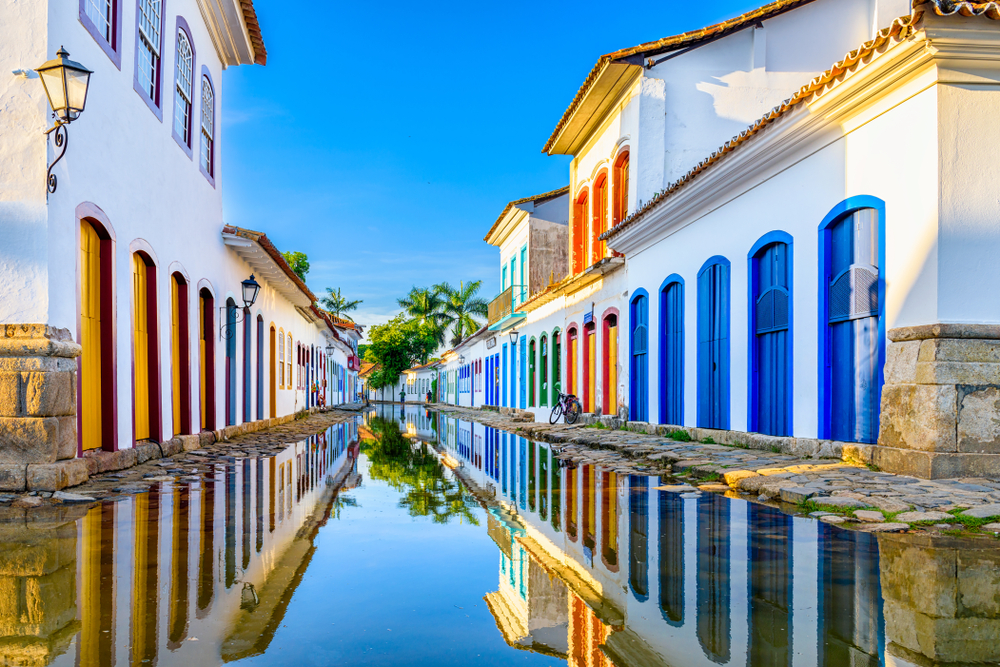A stroll around the irregular cobbled streets of the historical center of Paraty, the small coastal town 248 kilometers from Rio de Janeiro, gives the sensation of peering into Brazil’s colonial past. With no cars allowed, tourists are left to wander freely around the quaint stores and restaurants set up inside baroque 18th-century houses, while listening to the birdsong and the clip-clopping of the working horses pulling carts around town.
From the sea, the white buildings adorned with colorful doors and windows are just a tiny reminder of human life, alongside the boats coming and going from the busy marina—all of them belittled by the bright blue sky and the massive green mountains that shelter this unique way of life.
In a town that holds archaic Portuguese in its very name, time seems to pass as sluggish as the hot humid air. In a place where everything has changed, yet somehow remains the same, one wonders about how many stories unfolded below these flowery balconies. Seventeen years ago, British publisher Liz Calder—one of the founders of Bloomsbury—realized that all this room for imagination would make a great site for a festival celebrating the art of telling stories. Her thoughts found fertile ground in a group of Brazilian publishers, such as Companhia das Letras’ Luiz Schwarcz. Add some spare profits from the recently launched Harry Potter franchise to the mix and they had the foundations of one of Brazil’s most important literary events: Flip—the International Literary Festival of Paraty.
While there are other festivals around the world similar to Flip—such as the Hay Festival in Wales, which inspired the event in Paraty—the fact is that Flip is not only unique due to its carefully crafted schedule, or the renowned authors that it attracts. Flip is about the city of Paraty, its people, and their stories. As Mauro Munhoz, president of Flip’s organizing association Casa Azul, wrote: “A festival like Flip could only be successful in a place like this, a place which exudes an atmosphere of intense cultural effervescence and creative freedom.”

